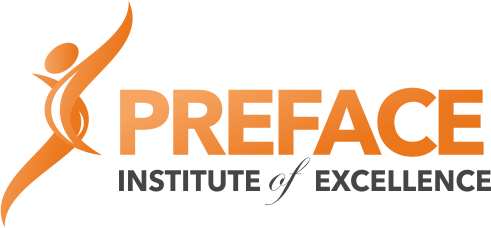The Role of Boarding Schools in Developing Social Skills and Emotional Intelligence
Social skills and emotional intelligence are crucial attributes that every student needs throughout their life. Boarding schools play a significant role in nurturing these essential skills, aiding students in both their personal and professional lives and helping them build well-rounded personalities. Through a variety of activities and a structured environment, students in boarding schools learn and practice life skills regularly. In India, residential schools are known for promoting social skills and fostering independence in students. This comprehensive exploration delves into the impact of boarding schools on shaping social skills and emotional intelligence.
How Boarding Schools Shape an Individual’s Future
Boarding schools, also known as residential schools, provide an immersive educational environment where students live on campus. This setting is designed to facilitate not only academic learning but also the holistic development of each student. Private boarding schools are particularly renowned for their focus on fostering the overall growth of students, aiming to shape well-rounded individuals prepared for future challenges.
Academic Growth in Boarding Schools
One of the primary advantages of boarding schools is their commitment to academic excellence. Boarding schools in India, for instance, follow a rigorous academic curriculum that emphasizes high-quality education. They offer a supportive infrastructure conducive to learning, characterized by a mentally stimulating environment and well-equipped facilities. The presence of skilled and experienced teachers is central to the academic success of students, providing guidance and expertise that help students excel. This strong academic foundation prepares students for higher studies and careers both within India and abroad, equipping them with the knowledge and skills necessary for success in various professional fields.
Physical Development Through Extracurricular Activities
In addition to academic pursuits, boarding schools recognize the importance of physical development. Students often need a break from their studies to engage in recreational activities. Boarding schools offer a wide range of extracurricular activities such as dramatics, sports, swimming, and chess, among others. These activities provide students with opportunities to explore their talents and interests, which can lead to career opportunities in the future. Participation in sports and other physical activities promotes physical health, teamwork, discipline, and leadership skills. By balancing academics and extracurricular activities, boarding schools ensure that students develop holistically.
Promoting Cultural Diversity
Boarding schools are known for attracting students from diverse cultural and socioeconomic backgrounds. This diversity enriches the learning environment and provides students with a unique opportunity to interact with peers from different parts of the world. Such interactions foster cultural diversity and help students develop a global perspective. They learn to appreciate and respect different cultures, which enhances their adaptability and prepares them to work in multicultural environments. Exposure to diverse viewpoints and traditions also promotes tolerance and mutual respect, which are essential for personal and professional growth.
Social Growth in a Communal Setting
The communal living environment of boarding schools plays a crucial role in developing social skills. Students spend significant amounts of time with their peers, teachers, and staff, engaging in various activities that require social interaction. This environment helps students learn the importance of effective communication, both verbal and non-verbal. They develop skills in leadership, teamwork, conflict resolution, empathy, and respect. These social skills are integral to personality and character development, enabling students to build strong relationships and work effectively in team settings.
Understanding the Importance of Social Skills for Students
Social skills are vital for students as they navigate academic environments, build relationships, and prepare for future success. These skills are essential for interacting with others, presenting themselves confidently, and surviving in a competitive world. Here is a detailed look at the social skills that are crucial for students:
Communication Skills
Effective communication is a cornerstone of social interaction. Teachers in residential schools invest significant effort in teaching students about verbal and non-verbal communication. Students learn to express their thoughts and ideas clearly and articulately, which is crucial for both personal and professional interactions. Communication skills also involve active listening, which fosters respect for multiple perspectives and enhances understanding.
Teamwork
Boarding schools often organize group activities and projects that require students to work together. These activities foster teamwork and teach students the value of collaboration. They learn to appreciate diverse opinions and ideas, which enhances their problem-solving abilities and promotes active learning. Teamwork also helps students develop leadership skills as they take on different roles within their groups.
Empathy
Empathy is one of the most essential social skills. It involves understanding and considering the feelings and perspectives of others. Boarding schools provide an environment where students can practice empathy by interacting with their peers and participating in community service activities. Showing compassion and support helps build long-lasting bonds and fosters a sense of community.
Conflict Resolution
Living in a boarding school environment exposes students to various practical instances where they must resolve disagreements and conflicts constructively. Learning to handle conflicts calmly and effectively is crucial for personal and professional success. Conflict resolution skills help students overcome challenges and maintain positive relationships, even in stressful situations.
Time Management
Effective time management is essential for academic success and personal well-being. Boarding schools teach students to organize their daily routines systematically, balancing academics, extracurricular activities, and personal time. Good time management skills reduce stress and anxiety, particularly during exams and other high-pressure periods.
Resilience
Failures and setbacks are a part of life, and students must learn to bounce back from them. Boarding schools provide a supportive environment where students can build resilience. They learn to handle stress and challenges positively, which fosters a growth mindset and prepares them for future obstacles.
Adaptability
Adaptability is the ability to adjust to new situations and environments. Boarding school students frequently face changes in their academic and social environments. Learning to be flexible and open to change helps them navigate these transitions smoothly and develop a positive attitude towards new experiences.
The Benefits of Emotional Intelligence in Students
Emotional intelligence (EQ) is the ability to understand, process, and manage one’s emotions and the emotions of others. High emotional intelligence is linked to various positive outcomes, including better mental health, improved relationships, and enhanced leadership skills. Here are the benefits of emotional intelligence for students:
Self-Awareness
Students with high EQ are more likely to be self-aware. They understand their strengths and weaknesses, which helps them make informed decisions and build their personalities. Self-awareness also involves recognizing and regulating one’s emotions, leading to better self-control and personal growth.
Self-Regulation
Emotional intelligence enables students to manage and regulate their emotions effectively. They learn to stay focused, control their impulses, and handle stress and pressure in healthy ways. This skill is particularly important in high-stress situations, such as exams or competitive events.
Mental Health
Students with higher emotional intelligence tend to have better mental health outcomes. They are better equipped to understand and manage their emotions, which reduces the likelihood of anxiety, depression, and other mental health issues. A healthy mind is essential for overall well-being and academic success.
Leadership Skills
Effective leaders have high emotional intelligence. They can handle various situations and teammates without letting biases or emotions get in the way. Students with strong EQ exhibit leadership qualities such as empathy, communication skills, and the ability to inspire and motivate others.
Diverse Backgrounds and Communal Living
Living in a communal setting with peers from diverse cultural and socioeconomic backgrounds is a hallmark of boarding school life. This environment encourages constant interaction and collaboration, helping students develop interpersonal skills. They learn to live together harmoniously, appreciate different perspectives, and build lasting friendships. This daily exposure to diversity fosters open-mindedness and adaptability, preparing students for the multicultural nature of the modern workplace.
Extracurricular Activities
Boarding schools offer a wide array of extracurricular activities that play a crucial role in social and emotional development. Participation in sports, arts, music, drama, and various clubs allows students to explore their interests and talents. These activities require teamwork, cooperation, and leadership, providing students with practical opportunities to apply and refine their social skills. Engaging in group projects and competitions teaches students how to work collaboratively, resolve conflicts, and develop a sense of camaraderie.
Ethics and Values Education
Many boarding schools incorporate ethics and values education into their curriculum. Students learn about important ethical principles, values, and traditions, which help them develop a strong moral compass. This education promotes critical thinking and ethical decision-making, enabling students to navigate complex social situations with integrity. By understanding and practicing values such as honesty, loyalty, empathy, and respect for diversity, students enhance their social skills and emotional intelligence.
Yoga and Mindfulness Practices
Yoga and mindfulness practices are increasingly integrated into the boarding school curriculum to promote emotional intelligence and well-being. These practices help students become more aware of their thoughts and emotions, fostering a sense of calm and inner peace. Regular yoga and mindfulness sessions improve emotional regulation, reduce stress, and enhance concentration. This holistic approach to education nurtures the mind, body, and soul, contributing to overall emotional health.
Independence and Responsibility
Living away from home in a boarding school environment requires students to take greater responsibility for their daily lives. They learn to manage their time, make decisions, and solve problems independently. This independence fosters self-reliance and accountability, essential qualities for personal and professional success. Students become more confident in their abilities to handle challenges, enhancing their resilience and adaptability.
Social Service Programs
Boarding schools often engage students in social service programs and community service activities. These programs teach important social skills such as generosity, empathy, and a sense of responsibility toward others. By participating in service projects, students develop a deeper understanding of societal issues and learn to contribute positively to their communities. These experiences also foster a sense of purpose and fulfillment, enriching students’ emotional lives.
Resilience Building
Boarding school life can be challenging, with academic pressures, extracurricular commitments, and the need to adapt to a new environment. These challenges provide valuable opportunities for students to build resilience. They learn to cope with setbacks, manage stress, and maintain a positive mindset in the face of adversity. Teachers and mentors in boarding schools provide support and guidance, helping students develop the emotional strength needed to overcome obstacles and thrive.
Holistic Development and Personal Growth
The holistic approach to education in boarding schools ensures that students develop not only academically but also socially, emotionally, and personally. The structured environment, diverse activities, and supportive community foster well-rounded growth. Students learn to balance their academic pursuits with personal interests and social interactions, leading to a more fulfilling and enriched educational experience.
Enhanced Interpersonal Relationships
The boarding school environment promotes close-knit relationships among students, teachers, and staff. Living and learning together creates a strong sense of community and belonging. Students develop meaningful connections with their peers, which are often lifelong. These relationships provide emotional support and a sense of security, enhancing students’ overall well-being.
Peer Mentorship and Leadership Opportunities
Boarding schools provide numerous opportunities for students to take on leadership roles and mentor their peers. These experiences are invaluable for developing leadership skills and emotional intelligence. Students learn to lead by example, offer guidance, and support their fellow students. Peer mentorship programs encourage older students to help younger ones adjust to boarding school life, fostering a sense of responsibility and empathy.
Technology and Social Media Management
In the digital age, managing technology and social media is an important aspect of social and emotional intelligence. Boarding schools often provide guidance on the responsible use of technology, helping students navigate the challenges of the digital world. They learn to balance screen time with real-life interactions, develop healthy online habits, and understand the impact of social media on their well-being.
Counseling and Support Services
Boarding schools typically offer robust counseling and support services to address students’ social and emotional needs. Trained counselors provide guidance on a range of issues, from academic stress to personal challenges. These services ensure that students have access to the support they need to thrive emotionally and mentally. Counseling sessions also teach students valuable coping strategies and emotional regulation techniques.
Global Exposure and Cultural Exchange
Many boarding schools offer opportunities for students to participate in international exchange programs, study abroad, or engage in global initiatives. These experiences expose students to different cultures and global perspectives, broadening their horizons and enhancing their cultural competence. Understanding and appreciating global diversity is a key component of social and emotional intelligence, preparing students for a globalized world.
Parental Involvement and Communication
Despite the physical distance, boarding schools often maintain strong communication channels with parents. Regular updates, parent-teacher meetings, and family visits ensure that parents remain involved in their child’s education and development. This partnership between school and home supports students’ emotional well-being and provides a solid foundation for their growth.
Developing Emotional Resilience
Boarding schools place a strong emphasis on developing emotional resilience. Students are encouraged to reflect on their experiences, learn from failures, and celebrate successes. This process helps them build a positive self-image and develop a growth mindset. Emotional resilience is crucial for navigating the ups and downs of life, ensuring that students can bounce back from challenges and continue to thrive.
Fostering Creativity and Innovation
Creativity and innovation are nurtured in the boarding school environment through various programs and activities. Students are encouraged to think outside the box, explore new ideas, and engage in creative pursuits. This fosters a sense of curiosity and imagination, essential for personal growth and future success. Creative activities also provide emotional outlets and help students express themselves in unique ways.
Career Guidance and Preparation
Boarding schools often provide comprehensive career guidance and preparation programs. These programs help students explore different career paths, develop relevant skills, and prepare for higher education and professional life. Career counseling sessions, internships, and workshops equip students with the knowledge and tools they need to make informed decisions about their futures. This guidance ensures that students are well-prepared to transition from school to the professional world.
Developing a Sense of Community and Belonging
Boarding schools emphasize the importance of community and belonging. Through shared experiences, traditions, and rituals, students develop a strong sense of identity and connection to their school community. This sense of belonging fosters emotional security and well-being, creating a supportive environment where students can thrive.
Integrating Technology in Learning
Modern boarding schools integrate technology into their teaching methods to enhance learning and develop digital literacy. Students learn to use technology responsibly and effectively, preparing them for the demands of the modern workplace. Digital literacy is an essential skill in today’s world, and boarding schools ensure that students are proficient in using technology for learning and communication.
Environmental Awareness and Sustainability
Many boarding schools incorporate environmental education and sustainability practices into their curriculum. Students learn about environmental issues, conservation, and sustainable living. Participation in eco-friendly initiatives and projects fosters a sense of responsibility toward the environment. This awareness and commitment to sustainability are crucial for developing socially and emotionally responsible individuals.
Boarding Schools as Microcosms of Society
Boarding schools function as microcosms of society, providing students with a realistic yet supportive environment to develop their social and emotional skills. The diverse and dynamic setting of a boarding school mirrors the complexities of the real world, offering students valuable experiences that prepare them for adult life. By navigating the social dynamics of a boarding school, students develop the skills needed to succeed in broader society.
Conclusion
Boarding schools play a pivotal role in shaping the social skills and emotional intelligence of students. Through a structured and supportive environment, diverse activities, and a focus on holistic development, boarding schools prepare students for the complexities of life. They foster independence, resilience, and a strong sense of community, ensuring that students are well-equipped to navigate personal and professional challenges. The comprehensive education provided by boarding schools nurtures well-rounded individuals who are capable of thriving in a globalized and interconnected world.
Preface Institute: Pioneering Boarding School Preparation
Preface Institute stands as a beacon among boarding school preparation institutions, renowned for its innovative methodologies and comprehensive approach to nurturing academic excellence and personal growth. Founded with a commitment to preparing students for the challenges of boarding school admissions, Preface Institute has carved a niche for itself through its unique blend of academic rigor, personalized guidance, and holistic development strategies.
History and Mission
Established with a vision to bridge the gap between traditional education and the demanding standards of boarding school admissions, Preface Institute was founded by a team of educators and experts in child development. Since its inception, the institute has aimed to empower students not only academically but also socially and emotionally, preparing them to thrive in diverse and competitive educational environments.
Unique Methodology
Preface Institute distinguishes itself through its distinctive methodology, which integrates several key elements:
- Customized Academic Planning: At Preface Institute, each student undergoes a personalized academic assessment and planning session. This initial step allows the institute to tailor its approach according to the student’s strengths, weaknesses, and aspirations. By identifying academic gaps early on, Preface ensures targeted and efficient learning strategies.
- Comprehensive Curriculum: The institute offers a rigorous curriculum that aligns with the academic standards of leading boarding schools. This curriculum not only covers core subjects but also includes specialized courses and enrichment programs designed to enhance critical thinking, problem-solving skills, and creativity.
- Focused Test Preparation: Recognizing the significance of standardized tests in the boarding school admissions process, Preface Institute provides intensive preparation for exams such as the SSAT, ISEE, and SAT. The institute employs experienced instructors who employ proven strategies to help students achieve their optimal scores.
- Holistic Development: Preface Institute places a strong emphasis on holistic development. Beyond academics, students engage in extracurricular activities, leadership training, and community service initiatives. This holistic approach aims to cultivate well-rounded individuals who are not only academically proficient but also socially adept and empathetic.
- Individualized Mentorship: Each student at Preface Institute is assigned a dedicated mentor who serves as a guide throughout their journey. Mentors provide academic support, offer career guidance, and foster personal development. This one-on-one mentorship ensures that students receive tailored advice and encouragement tailored to their unique needs and aspirations.
- Parental Involvement: Preface Institute recognizes the crucial role of parents in a student’s educational journey. The institute maintains open lines of communication with parents, providing regular progress reports and hosting workshops to educate parents about the boarding school application process. This partnership ensures that parents are well-informed and actively involved in supporting their child’s academic and personal growth.
Success Stories and Impact
Over the years, Preface Institute has garnered a reputation for excellence, with a high success rate in placing students in top-tier boarding schools. Alumni of the institute have gone on to excel not only academically but also in their chosen fields, equipped with the skills and confidence instilled during their time at Preface.
Community and Outreach
Beyond its core programs, Preface Institute is committed to giving back to the community. The institute participates in outreach programs aimed at providing educational opportunities to underprivileged students. Through partnerships with schools and nonprofit organizations, Preface extends its resources and expertise to benefit a wider audience, embodying its mission to promote educational equity and access.
Future Directions
Looking ahead, Preface Institute continues to innovate and evolve its programs to meet the changing landscape of education and boarding school admissions. The institute remains dedicated to nurturing the next generation of leaders and scholars, equipping them with the skills and resilience needed to thrive in an increasingly competitive global environment.
In conclusion, Preface Institute stands as a testament to the transformative power of education and personalized mentorship. Through its unique methodology, the institute not only prepares students academically but also fosters their personal growth and leadership potential. As it continues to uphold its commitment to excellence, Preface Institute remains a trusted partner for families seeking to navigate the journey to boarding school admissions with confidence and success.









